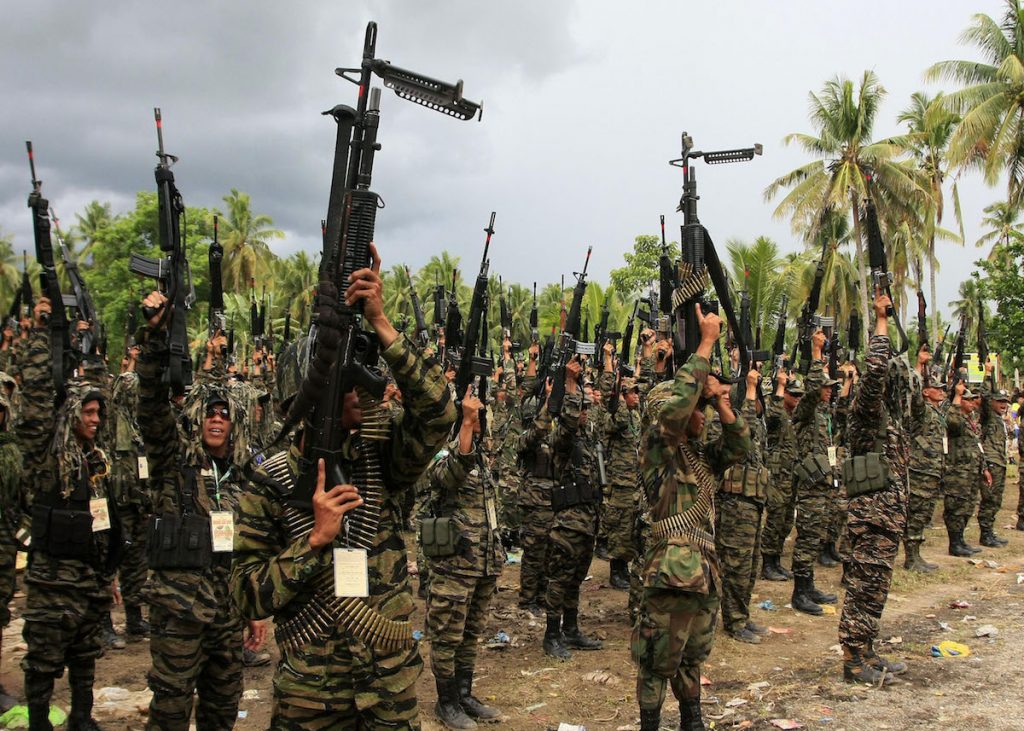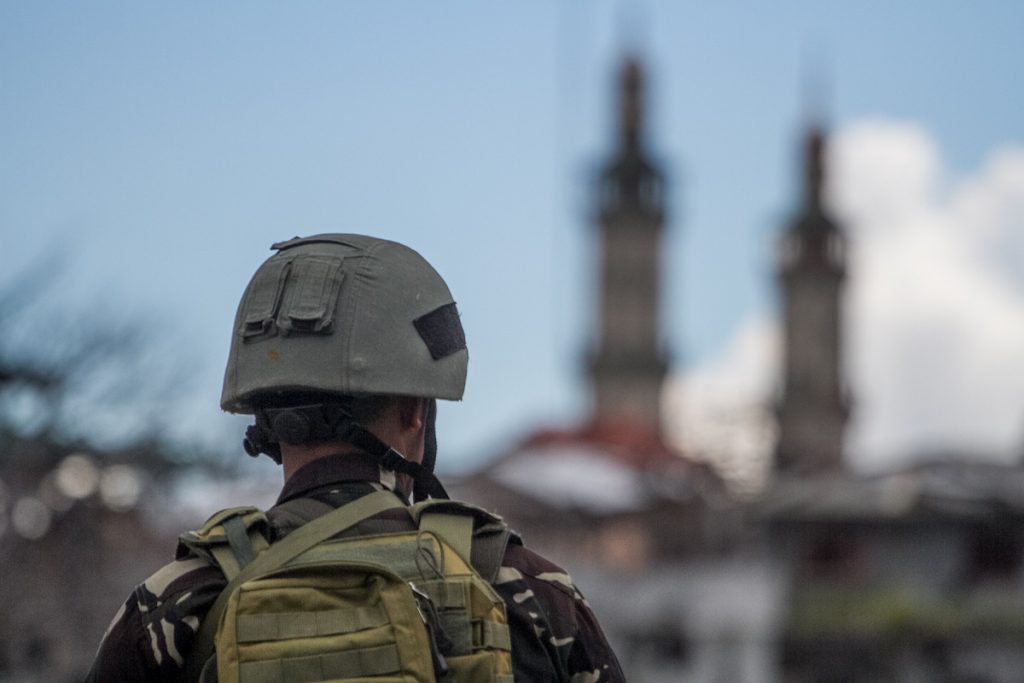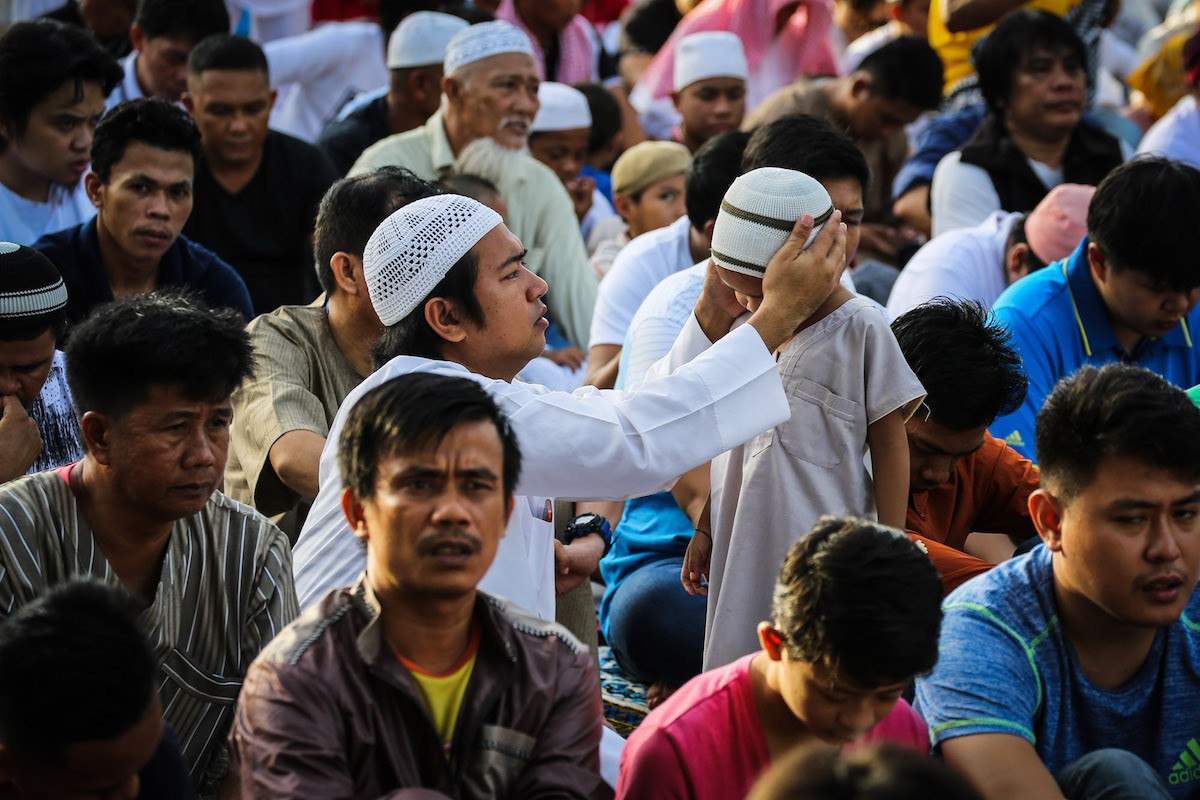Amir Mawallil, a young journalist turned legislator for the Philippines’ new Bangsamoro Autonomous Region in Muslim Mindanao, has replaced the normally colorful cover and profile photos of his Facebook page into stark black and white images.
Across the Philippines, young Muslims similarly responded with anger as a leaked document exposed ham-fisted police efforts to “counter violent extremism” by creating “a list of Muslim students in high school, colleges, and universities.”
“This is why it is hard to be a Muslim in this country,” said Mawallil, who has written thoughtful books on growing up Muslim in Asia’s largest Catholic majority country.
“It’s always like this, the Muslim experience is framed in a cruel, endless cycle. This discrimination that we feel is rampant, constant, and endless.”
The 180,000-strong Alliance of Concerned Teachers, which exposed the order, slammed authorities for Islamophobia.
The order said the list would be used as “reference in the series of activities in Metro Manila as part of the strengthening of peace-building and counter violent extremism.”
I have known Mawallil for years. He is an opponent of extremist groups and a leader of a generation of Filipino Muslims struggling to forge a new narrative beyond cycles of conflict and reprisals.
He has used his office to help young Muslims become engaged in governance and civil discourse, believing they can become a foil for the simplistic messages of hate.
His collection of essays, “A Constant Retelling: Exploring the Bangsamoro Narratives,” delves into the “privilege to remember,” distilling the ashes of defeat and the roars of victory and defiance into a guide for a peaceful future.
That dream is fragile, still tottering on the shaky legs of a new experiment on Muslim autonomy in the southern Philippine island of Mindanao.
Former warriors of the Moro Islamic Liberation Front now head an expanded autonomous region.
The MILF is currently decommissioning its 40,000-strong guerrilla army, with March 2020 as the target completion date.

Two days before the police order leaked, former MILF chief peace negotiator and now decommissioning panel chairman Mohagher Iqbal spoke on how combatants’ lives have changed.
“We now have peace, justice, and socioeconomic interventions from the government and the international community so, inshallah (God willing), we hope that the quality of our lives will improve most especially the MILF combatants,” he said during a media briefing.
Yet shadows loom over the dream.
In Marawi, the Islamic city bombed into rubble by President Rodrigo Duterte’s government, the promised reconstruction languishes.
Corruption and autocratic “development” plans roil Marawi’s populations, providing a rich well of disenfranchised, angry youth for extremists that five months of war and two years of martial law have failed to crush.
In Cotabato City, where the new regional autonomous government holds office, the government has delayed the city’s turnover despite a clear victory for autonomy inclusion.
Almost a century of conflict in Mindanao have forced out a quarter of Filipino Muslims from their ancestral homelands. Scattered across the country now, they face discrimination.
The feeling of alienation remains strong, grounded on reality and not just the paranoia peddled by extremist groups.
Like Mawallil, Macrina Hannah Morados, dean of the University of the Philippines’ Institute for Islamic Studies, spends much of her time fending off the inroads of extremism, presenting an alternative Islam for generations that grew up amid war.
Poverty, intense discrimination, and the disconnect in government promises and actions make it an uphill climb for Morados, who receives death threats from unknown members of radical groups.

Speaking at an inter-faith forum this week, Morados also hinted that some sectors in government are equally guilty as extremists in fomenting conflict.
“We are all victims of greed for power,” she said. “There’s money in violent ideology. But also, the big business in the world is war. If there is no war, there is no money for intelligence (agencies).”
The head of the national capital region police office, Major General Debold Sinas, claimed the order was just to make it easier for the special “Salaam” police center “to conduct interventions and programs” for strengthened community relations.
He also noted that dialogues, training workshops, and seminars try to establish and maintain relations with the capital region’s Muslim community.
But the police have no business demanding information on students’ faith from schools. If they, indeed, engage in regular liaison with leaders of the capital’s Muslim communities, the figures of membership can be accessed through these channels.
Any “counter extremist” seminars can also be done in partnership with traditional community leaders.
The military and police have already been swamping schools and offices over the past year with “peace seminars” that are an appalling mix of red-tagging of legal groups, historical revisionism that aims to downplay the effects of the Marcos dictatorship’s martial law years, and drum-beating that even the National Economic and Development Authority has acknowledged as infirmed.
First, they came for perceived communists. Now, they’re coming for Muslims. It’s not unreasonable to suspect the government of hatching new scare tactics to cover-up and correct the fallout of Duterte’s snit towards the United States, the Philippines main ally on the anti-terror front.
Filipino Muslims know the ups and downs of peace efforts. Most of them have persevered in the face of great challenges. Most of them will stay the course.
He reminds the government to tamp down on the dissonance between words and actions.
“There will never dawn a day when I will allow oppression,” writes the young Bangsamamoro leader. “They don’t get to do this in my name. Ever.”
Inday is an award-winning journalist in the Philippines. She is a recipient of the “Prize for Independence” of the Reporters Without Borders in 2018. The views expressed in this article are the opinions of the author and do not necessarily reflect the editorial stance of LiCAS.news.







